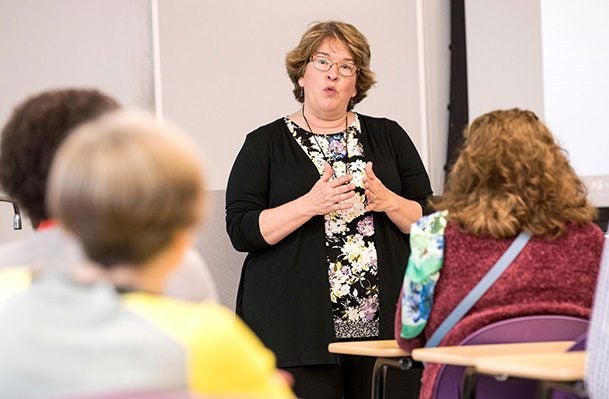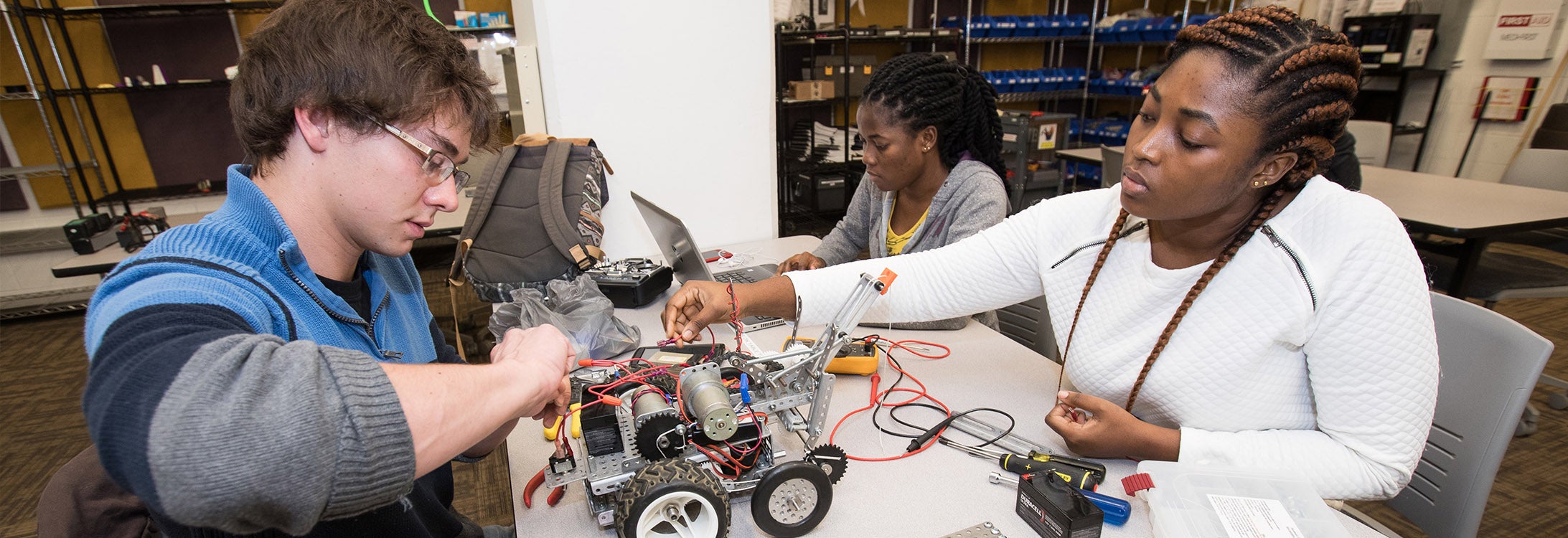SUPPORTING TEAM SCIENCE
New $1.6M grant will prepare students with skills desired by employers through research
East Carolina University’s undergraduate research and student training opportunities will receive a boost thanks to a $1.6 million grant from the National Science Foundation.
The award, provided by the NSF’s Division of Undergraduate Education, will grow the number of course-based undergraduate research experiences (CUREs) while also altering the way students in these courses interact with their peers through a team science approach.
Undergraduate research opportunities have traditionally focused on an individual’s acquisition of science, technology, engineering and math (STEM)-related skills. Often, nurturing team building and collaboration proficiencies are secondary.
The project’s interdisciplinary —led by Joi Walker (chemistry and STEM Collaborative for Research in Education) and includes Mary Farwell (biology and Division of Research, Economic Development and Engagement), Stephen Moysey (geological sciences and ECU Water Resources Center), Brian Sylcott (engineering), and Heather Vance-Chalcraft (biology and STEM Collaborative for Research in Education) — saw an opportunity to change that way of thinking. The team has previously brought more than a combined $2.5 million in NSF funding to ECU as lead project investigators.
“Historically, undergraduate training rarely provided future scientists with the knowledge, skills and attitudes required for effective collaboration within a science team,” Walker said. “This lack of focus on team building is problematic as teamwork is increasingly important in the workplace. Several studies suggest that team science can rapidly advance scientific and technological innovation by increasing research impact, novelty, productivity and reach.”
The project will have two central research themes: biomedical and environmental science. The investigators believe that building the collaboration of multiple courses around these research areas is a highly innovative aspect of the project.
“Having students and faculty from multiple courses collaborate on common research projects from unique disciplinary perspectives is a key part of learning how to be a scientist who can work in a complex real-world work environment,” Moysey said. “The Water Resources Center is looking forward to facilitating these activities by contributing to building shared, cross-disciplinary field and laboratory facilities at ECU.”

Joi Walker, lead investigator for the NSF grant, said that research has shown that team science can rapidly advance scientific and technological innovation by increasing research impact and productivity.
Along with the debut of a new geology pre-research introductory lab, four CUREs in biology, chemistry, geology and engineering will launch. The university will also add four additional multidisciplinary CUREs requiring cross-course collaboration that will bring students together from various scientific and engineering backgrounds.
In all, the four-year project will span two colleges and reach 6,000 students. Students participating in STEM courses will begin their scientific journeys as part of ECU’s introductory lab courses before enrolling in discipline-specific and multidisciplinary CUREs.
“Acquiring teamwork skills emerged as a theme when graduates were asked about deficiencies in their undergraduate education,” Sylcott said. “The multidisciplinary CUREs are unique, particularly because of the cross-college emphasis.”
Along with the addition of new CUREs, the project will bolster mentorship training for students and develop teamwork abilities that will translate between scientific disciplines and careers.
“We will train upper level undergraduates, along with any graduate assistants hired to help with these projects,” Vance-Chalcraft said. “A subset of students participating in a discipline-specific or multidisciplinary CURE will be asked to participate as a research mentor for that CURE the following year.”
Student and faculty mentors in the project will be trained to integrate teamwork skills such as communication, conflict management and leadership in their courses through integrated class exercises, such as team project proposals, reports, presentations and work plans.
Course-based undergraduate research classes provide a laboratory-learning environment in a traditional class period. The class investigates an original research question that has broad scientific importance, providing students with an authentic research experience. Because of their unique structure, CUREs do not require students to use their time outside of the classroom to participate in research activities.
The leadership team believes that along with improving teamwork skills, implementing new CUREs will alleviate some of the obstacles preventing undergraduates from participating in research opportunities. These range from limited faculty capacity to engage students in traditional independent research to a lack of time in students’ schedules or students being unaware that research opportunities are available to them.
“Entire groups may be cut out of research opportunities without CUREs, including first-generation students, student-athletes, non-traditional students and transfer students,” Farwell said. “Faculty research may also benefit as CUREs serve as a bridge between the implementation of teaching through undergraduate research and the need to develop and sustain high-level academic research programs.”
Walker said the project will begin July 1 and run through 2024.
